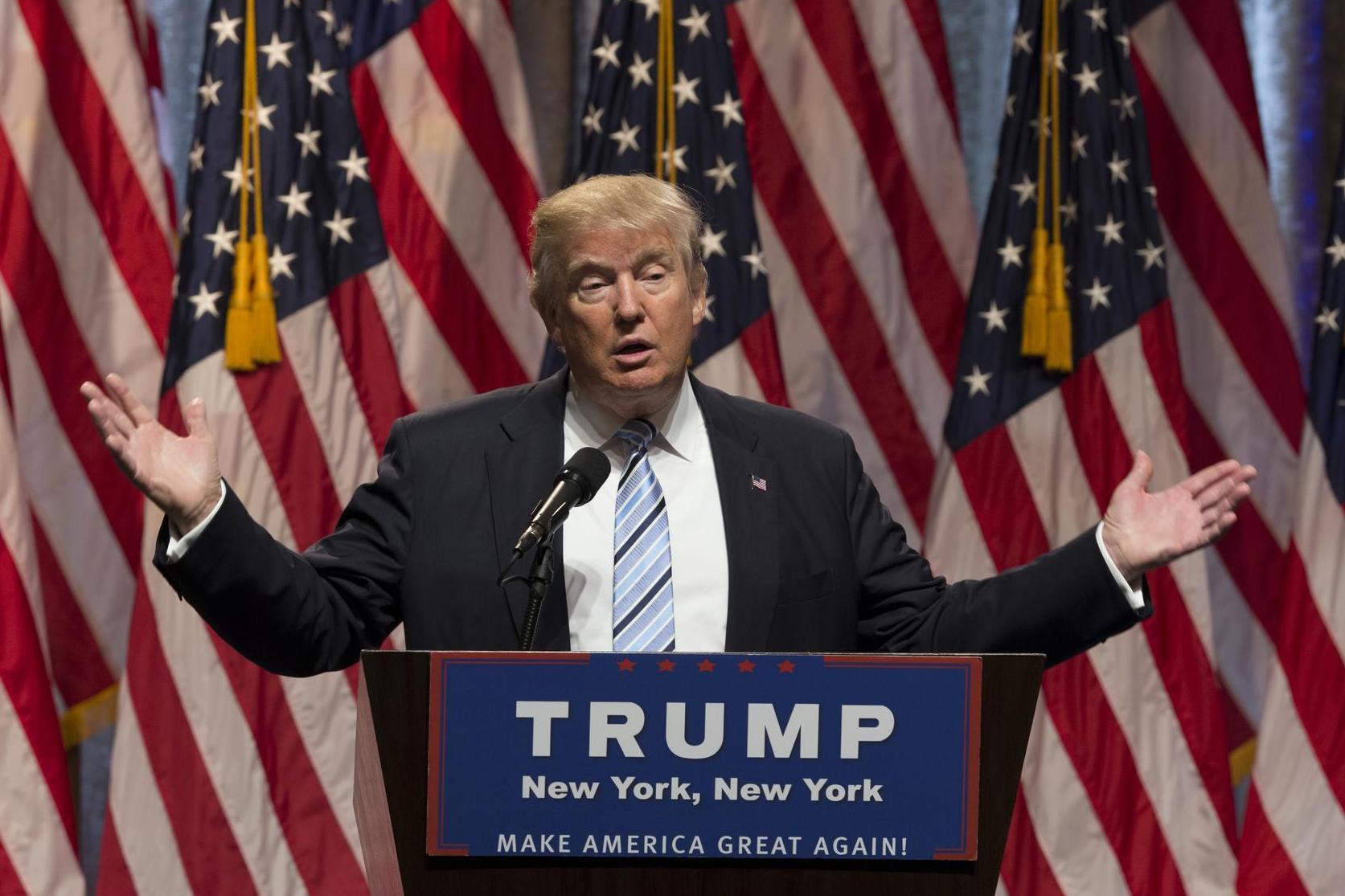Donald Trump’s tax affairs and four other things to look for in world economics this week
This week in economics look out for Google’s rumoured acquisition of Twitter; the fate of Deutsche Bank; the rise of the electric car and the market’s reaction to the Tory party conference


Your support helps us to tell the story
From reproductive rights to climate change to Big Tech, The Independent is on the ground when the story is developing. Whether it's investigating the financials of Elon Musk's pro-Trump PAC or producing our latest documentary, 'The A Word', which shines a light on the American women fighting for reproductive rights, we know how important it is to parse out the facts from the messaging.
At such a critical moment in US history, we need reporters on the ground. Your donation allows us to keep sending journalists to speak to both sides of the story.
The Independent is trusted by Americans across the entire political spectrum. And unlike many other quality news outlets, we choose not to lock Americans out of our reporting and analysis with paywalls. We believe quality journalism should be available to everyone, paid for by those who can afford it.
Your support makes all the difference.First, look at America, and in particular its politics. Yes, I am aware there is a Tory conference and there is a lot of stuff about Brexit. More of that in a moment. Meanwhile the harsh truth remains that what happens in the US is vastly more important than what happens here. This will be a crucial week for that.
The issue is Donald Trump. The New York Times has just published a story about the presidential candidate’s tax affairs, the gist of which is that he may have quite legally avoided paying taxes over the past 18 years. Normally you might think this would be a damaging story, but the interesting thing here is that it may not. The point is that for people who do not support him this would seem outrageous – but they are not going to vote for him anyway. For people who do support him, this may simply show that he is clever – that he practices what he preaches in that he uses legal means to starve the hated big government for money.
There is a parallel here with language. Trump uses short words in simple sentences that can be understood by anyone with a reading age of about eight. He is a master of Twitter. By contrast Hillary Clinton uses more complex words and constructions. Normally this is language where you would need to be in your teens to understand. Educated East Coast liberals in the US sneer at the language used by Trump, quite apart from the sentiments he expresses. But by keeping the message simple – I don’t like government and I’m not going to pay for it – Trump may get more support from revelations about his tax affairs than his opponents would expect. I hope I’m wrong, and this story could inflict a deep wound on the candidate, but we’ll see. At any rate this is an important week. We are on final approach to the election next month and a story like this could flip things one way or the other.
As it happens there may also be news about Twitter this week. There are rumours of a bid from Google. Twitter has changed the world of communications but it has not managed to capitalise on its success to the extent that other social media companies have done. Over the past two years its numbers of active users have levelled off, whereas numbers on Facebook, WhatsApp, WeChat, and Instagram have soared. But Twitter remains a potent way of getting messages across. Short is best, as Donald Trump knows. Twitter needs new direction and the question is who might give it that. We may know more this week.
Third, I’m interested in Germany. The obvious running story is what will happen to Deutsche Bank. On Friday the mood had lifted a little, but given the direction stories about bank weakness run, the balance of probability remains that there will eventually be some sort of rescue. But the much more important issue is European banking stability in general, and that is the place to look for stories.
Four, the aftermath of the Paris Motor Show last week: the stories in the media in the UK focussed on the implications of Brexit on the industry, but that is really a detail. The big story is that mainstream motor manufacturers will go electric. Diesel cars will be phased out and electric ones will take over. And that will happen far faster than people expect.
Finally there is the Tory conference. You never learn much from party conferences, even one as significant as this one, but by the end of the week the market reaction will tell us much more about the likely train of Brexit: hard or soft? In particular, we will also have a feeling for future fiscal policy – probably some easing but not a lot. That will affect the trend in interest rates. My feeling is that another cut in rates may now be dead, given the rebound in the economy post-Brexit vote. Watch the markets this week.
Join our commenting forum
Join thought-provoking conversations, follow other Independent readers and see their replies
Comments